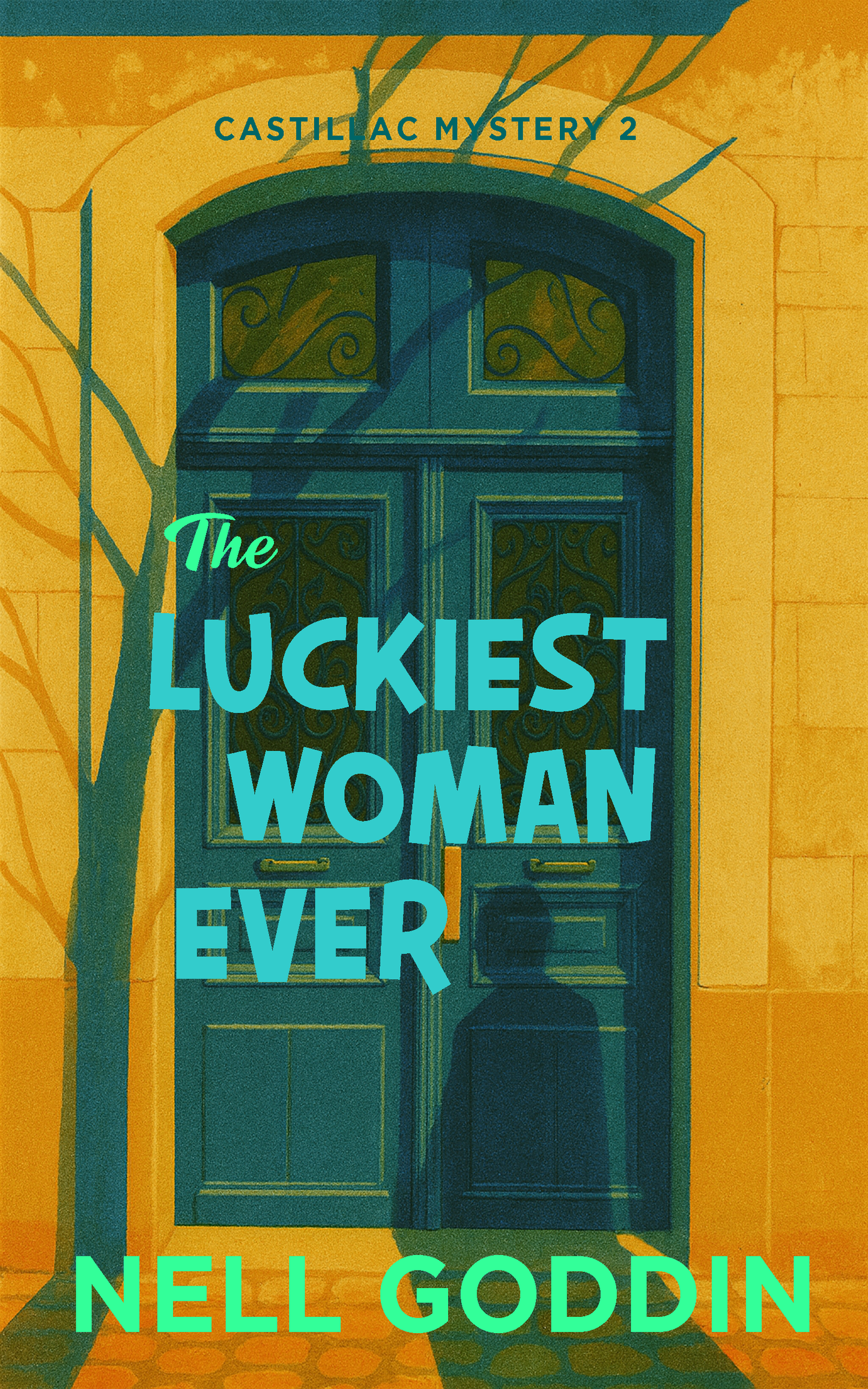Goddin Books
The Luckiest Woman Ever - Molly Sutton Mysteries 2 (paperback)
The Luckiest Woman Ever - Molly Sutton Mysteries 2 (paperback)
Book 2 in the Molly Sutton Mysteries series
Couldn't load pickup availability
Immerse yourself in a French village
Cozy mystery
Read a description of the series
Read a description of the series
Boston girl Molly Sutton moves to a village in France to heal after a divorce--but then a girl goes missing. Follow the intrepid expat as she uncovers secrets and chases down murderers in charming Castillac, eating a few pastries along the way.
Series Reading Order
Series Reading Order
- The Third Girl
- The Luckiest Woman Ever
- ThePrisoner of Castillac
- Murder for Love
- The Chateau Murder
- Murder on Vacation
- An Official Killing
- Death in Darkness
- No Honor Among Thieves
- Eye for an Eye
- Bittersweet Oblivion
- Seven Corpses All In A Row
- Madam Tessier Knows All
Read chapter 1
Read chapter 1
Money-back guarantee if you're not satisfied! :)
- Paperbacks are shipped to you via media mail
- You'll receive a tracking number when shipped
After amateur detective Molly Sutton stumbles on a dead body, she wastes no time before eavesdropping and elbowing her way into conversations all over the French village of Castillac. But when Chief Dufort is about to clap handcuffs on the wrong man, she’s got to do more than chat to save him. Will she have the stuff—and the skill—to pull it off?
(Molly Sutton Mystery #2)
Share

Paperbacks in the Molly Sutton Series
-
The Third Girl-Molly Sutton Mysteries 1 (paperback)
1 reviewRegular price $14.99 USDRegular priceUnit price / per$16.99 USDSale price $14.99 USDSale -
The Luckiest Woman Ever - Molly Sutton Mysteries 2 (paperback)
11 reviewsRegular price $14.99 USDRegular priceUnit price / per$16.99 USDSale price $14.99 USDSale -
The Prisoner of Castillac - Molly Sutton Mysteries 3 (paperback)
4 reviewsRegular price $14.99 USDRegular priceUnit price / per$16.99 USDSale price $14.99 USDSale -
Murder for Love-Molly Sutton Mysteries 4 (paperback)
3 reviewsRegular price $14.99 USDRegular priceUnit price / per$16.99 USDSale price $14.99 USDSale -
The Chateau Murder - Molly Sutton Mysteries 5 (paperback)
2 reviewsRegular price $14.99 USDRegular priceUnit price / per$16.99 USDSale price $14.99 USDSale
I found The Luckiest Woman Ever: Molly Sutton Mystery 2 just as engaging and enjoyable as the first. Goddin’s descriptions are great. I love the lifestyle in the small French village. Molly’s challenges continue, along with daily life in France. The characters are realistic and likable. The cozy mystery has lots of intrigue without graphic violence. There’s an interesting twist at the end. The Luckiest Woman Ever: Molly Sutton Mystery 2 is a must read cozy mystery!
Enjoyed the setting of a village in France. The characters are likeable. The story was a fun read with plot twists. I recommend this book for an enjoyable pasttime.
Loved both books. Ready to move to Castillac, crime and all. Appreciated reading a book without bad language and graphic sex.
Will be reading more from this author.
You want to read a mystery that you can’t figure out who the murderer is - this is the one for you.
I enjoyed the characterization and was able to see through Molly’s eyes. It was fun to try to solve the mystery and wrap up the story before the characters did. I will read more in this series.






